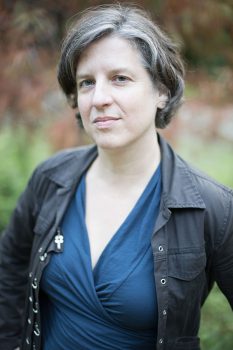Virginia Eubanks is the Fifth Speaker in W&L’s Mudd Lecture Series Eubanks' talk is titled "The Shakedown State: Digital Debt, Economic Inequality and Automation in Public Services."
Virginia Eubanks, associate professor of political science at the University of Albany, SUNY, will lecture at Washington and Lee University in Stackhouse Theater on Nov. 14 at 5 p.m. as part of the Mudd Center for Ethics series on “The Ethics of Technology.”
Eubanks’ talk, which is free and open to the public, is titled “The Shakedown State: Digital Debt, Economic Inequality and Automation in Public Services.”
For two decades, Eubanks has worked in community technology and economic justice movements. She was a founding member of the Our Data Bodies Project and a 2016-17 fellow at New America. She also co-founded the Popular Technology Workshops, which serve as a place for ordinary people to come together to define and combat the social, economic and political injustices of the information age.
Eubanks is the author of “Automating Inequality: How High-Tech Tools Profile, Police, and Punish the Poor” and “Digital Dead End: Fighting for Social Justice in the Information Age.” She is co-editor, with Alethia Jones, of “Ain’t Gonna Let Nobody Turn Me Around: Forty Years of Movement Building with Barbara Smith.” Her writing about technology and social justice has appeared in Scientific American, The Nation, Harper’s and Wired.
“Professor Eubanks has written a compelling book about the sorry record of digital decision-making and predictive algorithms in the context of public services,” said Brian Murchison, director of the Mudd Center. “Her skepticism is an important piece of the conversation about the ethics of technology.”
She is among the founders of Our Knowledge, Our Power: Surviving Welfare, a grassroots welfare rights and anti-poverty organization. She is also on the board of directors of Holding Our Own: A Fund for Women, the only grant-giving organization in the region dedicated to advancing feminist social change. Her activism and scholarship are grounded in the idea that people closest to problems have the best information about them and are most invested in creating smart and sustainable solutions.
Eubanks joined the faculty at SUNY in 2004 after completing her doctorate in science and technology studies at Rensselaer Polytechnic Institute. Her research on technology, poverty and women’s citizenship is grounded in her history of activism in community media and technology center movements.
 Virginia Eubanks
Virginia Eubanks
You must be logged in to post a comment.